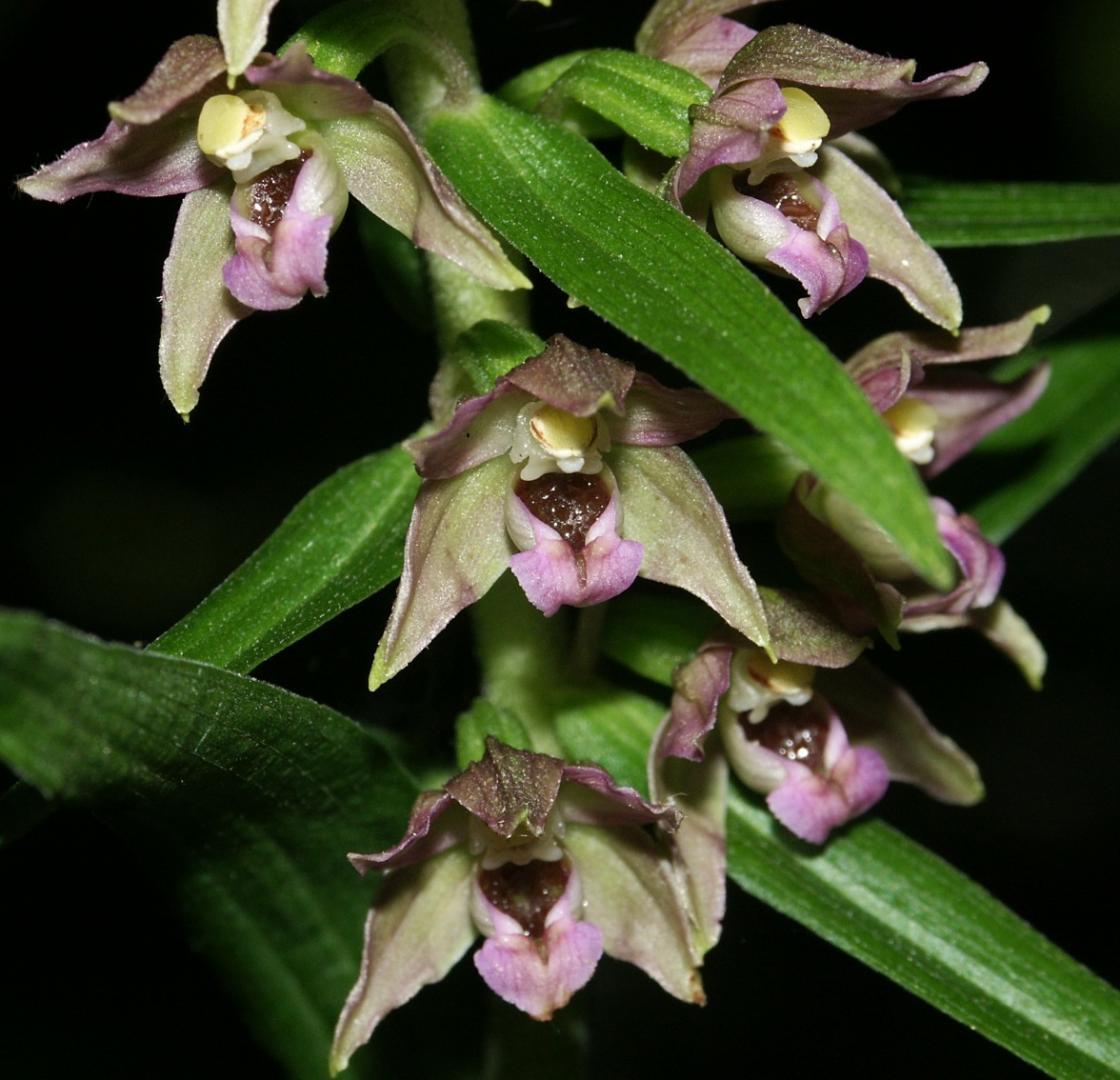Broad Leaved Helleborine.
Epipactis helleborine
SOME years ago in the northern suburb of Barnton, in Edinburgh, residents were disturbed by a persistent weed that resisted all attempts at elimination.
It came up in flower beds, raised paving stones on footpaths, and even cracked open the tarmac. Digging it out didn’t work, flame throwers failed, and weedkillers worked for only a season till it popped up again.
In desperation, a deputation sought advice from the Royal Botanic Gardens. Experts identified the plant as an orchid: the Broad Leaved Helleborine. Its distribution was mapped and proved to be around the perimeter of a huge circle, suggesting it was an ancient colony that had simply spread and spread.
These plants are between 12 and 30 inches high, and the flowers don’t appear till late in summer which is probably why the Barnton gardeners didn’t get the chance to recognise it as an orchid. The flowers, up to 50 per stem, are greenish purple and long-lived, and there is evidence that they are pollinated by wasps.
These plants can be found in The Bowes Museum gardens. Their distribution seems to be in a wide arc stretching east from the Catholic Church, along the southern areas of the gardens towards Barnard Castle School. So it is possible that these form part of another ancient colony. As with the one in Barnton, some of these, too, have suffered from weed killing but survive. In any case these orchids are temperamental, and do not appear every year.
There are some gardens in Barnard Castle that have suffered other orchid invasions. One I’ve been shown has a swarm of common spotted orchids which have seeded and spread over the years. Interestingly they appear around hostas, garlic, irises and alliums, all of which belong to the lily family. We know that orchid seed is dust-like and has no food reserve so needs a fungus to bump start it into growth. Is it possible that members of the lily family share this fungus, and so promote germination of the orchid?
Another garden has a ruthless epidemic of northern marsh orchids, a delightful plant until you find it colonising flower beds, pots, troughs and even hanging baskets – taking over, in fact. And since these gardeners may well have sent the old seed heads off for recycling, it is just possible that we will see further outbreaks of orchids – indeed all but a regional pandemic of them – when the local compost arrives next season.
Dr Richard Warren is a botanist from Barnard Castle
ADVERTISEMENT
Flora and fauna: Orchid weeds – the great plant survivors
ADVERTISEMENT
ADVERTISEMENT
ADVERTISEMENT







